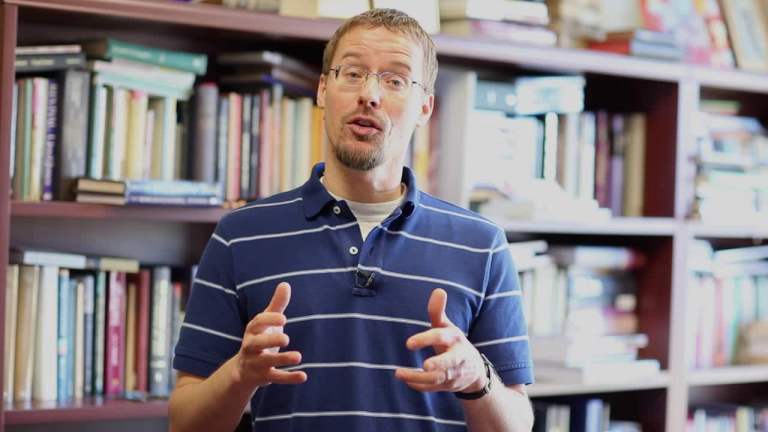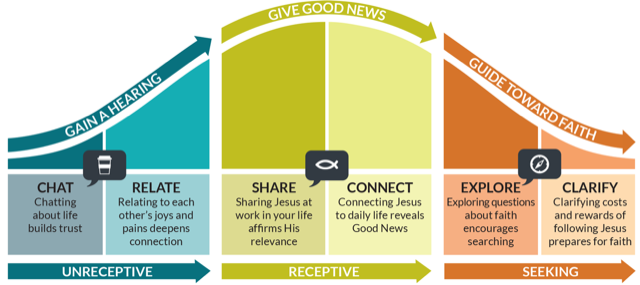Winfield Bevins in Multiplying Disciples, What Movements Can Teach Us about Discipleship states that The Celtic Movement, The Moravian Movement, and The Methodist Movement were all multiplying discipleship movements. Chi Alpha is a discipleship movement and sees disciple-making to be a deliberate and specific process by which growing or mature Christians assist in the spiritual growth of younger Christians in the context of personal relationship. It is this essential ingredient of relationship which makes disciple-making different from the modern concept of education. Disciple-making is the act of reproducing followers of Jesus Christ. Multiplying discipleship movements distinguish between addition and multiplication illustrated by contrasting what a gifted evangelist with an international reputation would accomplish if 1000 persons gave their lives to Christ every night for one year. It would take him over 10,000 years to win the entire world for Christ. If a disciple-maker won one person each year and trained that person to win one other person each year, it would take only 32 years to win the whole world. Discipleship is not complete until each disciple is released to in turn disciple others; one maturing believer reproducing other maturing believers, to the degree that they are also able to reproduce maturing believers.
David Watson, in his book, Called and Committed, World Changing Discipleship, explained that Jesus’s disciples were to make disciples who would make disciples, ad infinitum . . . a disciple is a follower. A Christian disciple has committed himself/herself to Christ, to walking Christ’s way, and living Christ’s life, and to sharing Christ’s love and truth with others.
Chi Alpha takes the disciple-making mandate in Matthew 28 as essential to our mission on campus. This discipleship culture understands that discipleship results in a complete submission to the Lordship of Christ, life transformation into conformity to Christ, and ministry reproduction.
The movements noted above all utilized of small groups in disciple-making, and this is why these movements advanced the work of Christ in the world. Bobby Harrington, executive director of Discipleship.org offers characteristics, if not, insights, into disciple-making cultures that we can apply as we reflect on our own ministries.
1. Disciple making is motivated by a loving, deep concern for people lost without salvation in Jesus.
2. Disciple making is the core mission and foundation of the church (campus ministry) and everything the church (campus ministry) does.
3. Every decision made and every dollar spent passes through the filter: How does this help us to make disciples?
4. Praying and fasting are significantly entrenched—it happens a couple of times a week and it is intensified in special seasons—asking for God to empower the mission of reaching as many as possible.
5. Almost everyone has been mobilized to the mission of making disciples.
6. Church(campus) leaders are focused on continual coaching and sustaining the disciple-making groups, classes, and bands.
7. There is joyful expectation that everyone a) obeys all of Jesus’ commands and b) joins the mission.
8. Everyone understands the mission and method to be used.
9. A disciple-making movement regularly results in new church plants, (or in our situation multiplying XA on new campuses, pioneering XA groups).



